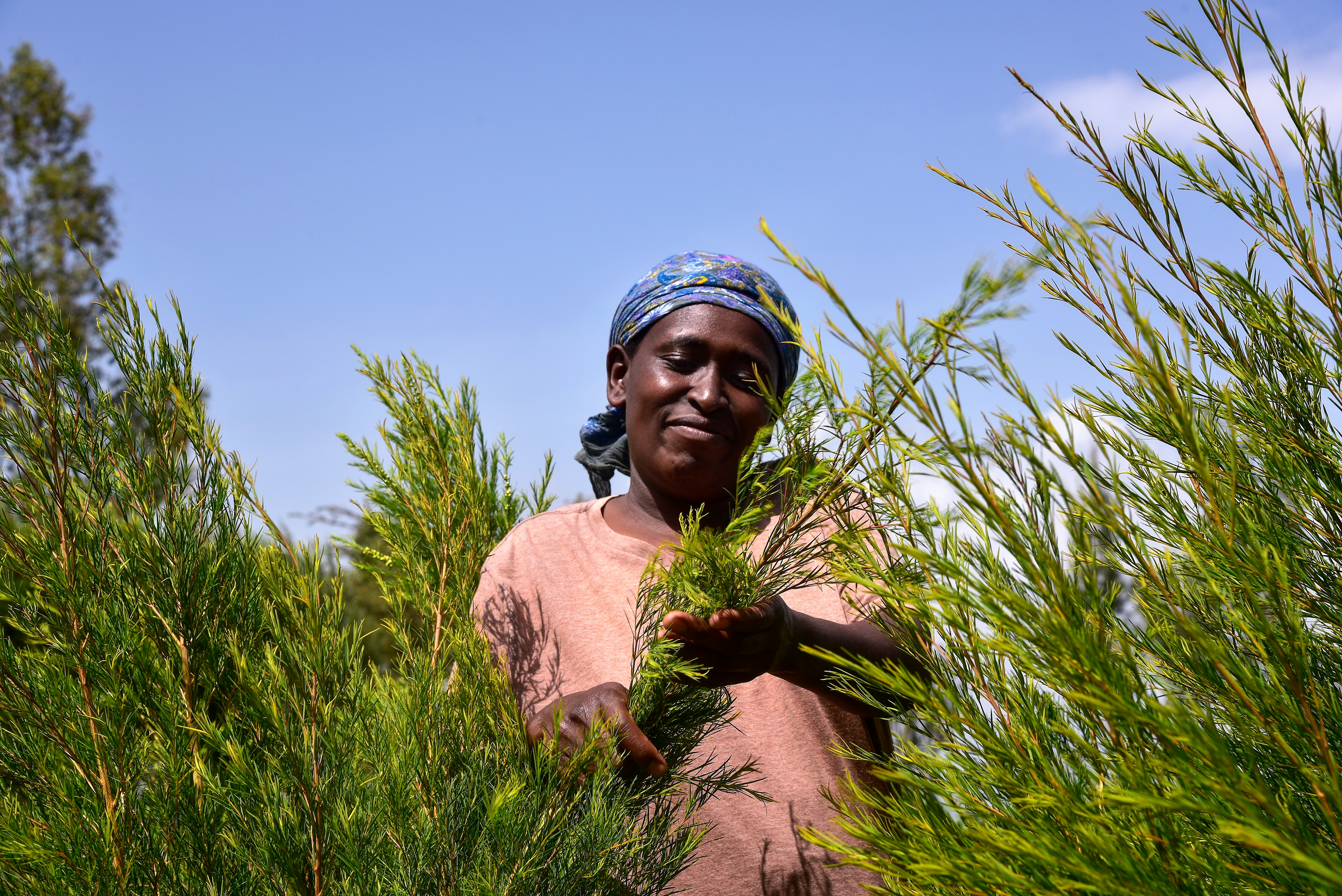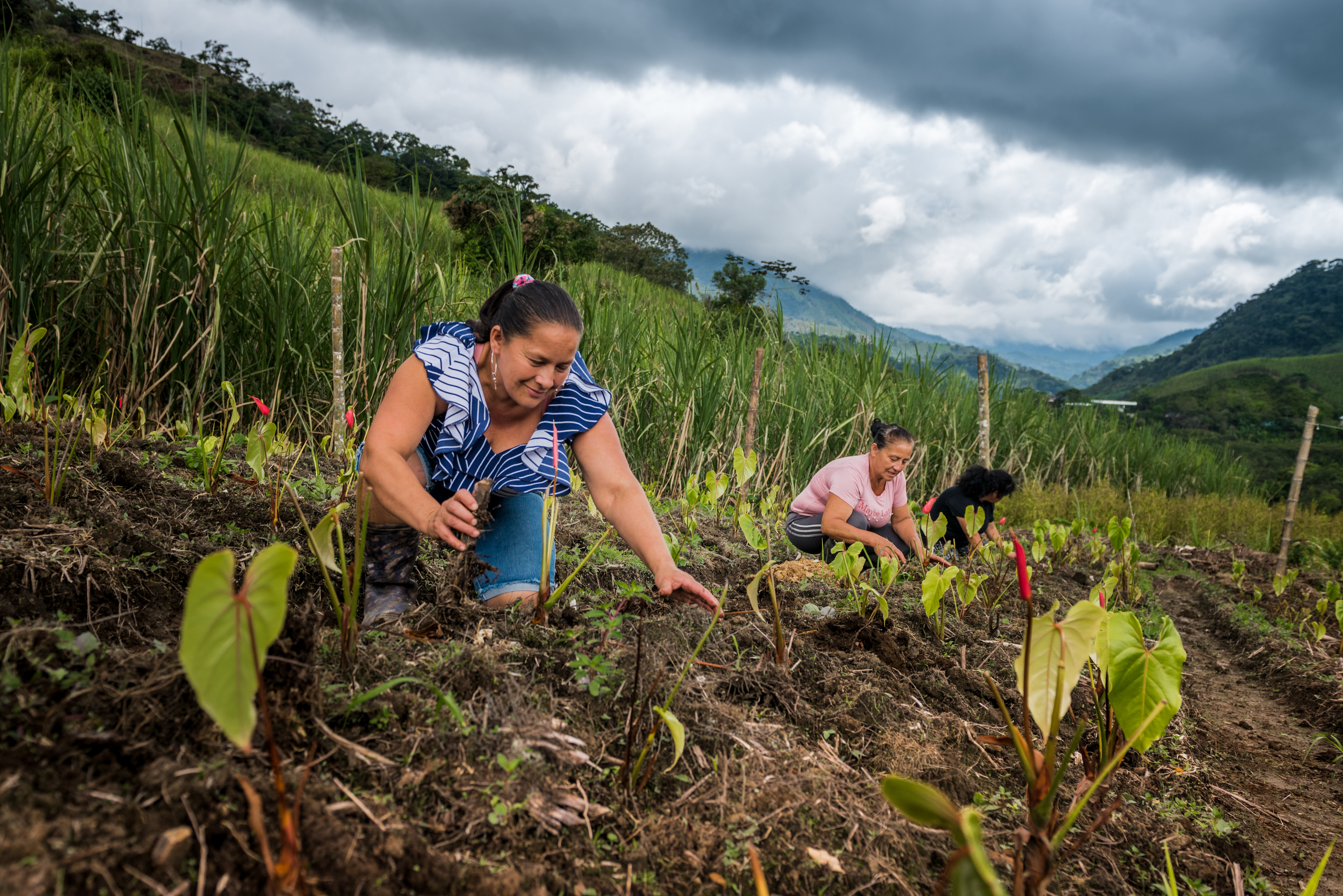➡️ Back to the IPPN group!
This blog was authored by Zoha Shawoo, an Associate Scientist at the Stockholm Environment Institute (SEI), following the IPPN Knowledge Café: Policy Coherence between the Paris Agreement and the 2030 Agenda (8 December 2021).
Climate and development challenges are becoming increasingly intertwined. According to the Intergovernmental Panel on Climate Change (IPCC), limiting warming to 1.5°C this century would make it much easier to eradicate poverty and make progress on critical development goals such as health, education and food and water security.
The need to address inequality has also never been more pertinent. The COVID-19 pandemic exposed the systemic inequalities embedded in our societies and demonstrated how the poorest and most vulnerable are most heavily impacted by such global crises. Evidence indicates that climate change is only worsening these inequalities.
Addressing climate change is therefore critical to advancing sustainable development and addressing inequality. Yet climate progress can also be inequitable and leave certain populations behind. For example, without guard rails in place, shifting away from fossil fuels could damage the livelihoods of coal workers or poorer populations through rising energy prices or job cuts. Similarly, policies aiming to preserve forests negatively affect Indigenous populations through land-grabbing by governments or private companies in cases where property rights are poorly defined.

COVID-19 laid bare systemic inequalities that have been ignored for decades – inequalities that can be worsened by climate change. But the crisis is also an opportunity for systemic change. Photo: UNDP PAPP/Ahed Izhiman
Many argue that policy coherence, defined as coordinated policy-making across goals and objectives, would help governments navigate these trade-offs in a transparent and equitable manner and ensure that climate solutions truly leave no one behind. However, dominant understandings of policy coherence remain highly technical in nature, focused on communication or coordination between institutions.
Such institutional measures, while critical, can overlook essential questions such as: Which actors does policy coherence serve over others? How do vested interests inhibit coherence? What dominant ideologies do coherence efforts uphold? Not accounting for these more political dimensions of coherence risks ignoring how climate policy-making can negatively affect certain groups over others.

In Kenya, challenges related to policy coherence arise from the need to address climate change and the country’s reliance on fossil fuels. Photo: UNDP Kenya
Drawing on our research at the Stockholm Environment Institute, I provide three short examples below demonstrating the need to move beyond conventionally institutional understandings of policy coherence to address climate change equitably:
1. Renewable energy deployment in Australia
In Australia, tensions occur between the aims of expanding renewable energy and meeting climate goals on the one hand, and objectives to expand gas supply and maintain the coal industry’s ongoing economic benefits to rural communities on the other hand. Such conflicts are difficult to navigate due to policy coherence challenges caused by political polarisation and partisan disagreement on climate policy, as well as the fossil fuel industry’s significant influence over decision-making. This hinders the country’s progress on meeting both its emission reduction targets and addressing national inequalities.
2. Economic growth advancement in Kenya
In Kenya, conflicts arise between the need to address climate change and the country’s reliance on fossil fuels to drive its economic growth and reduce poverty and inequality. The country does have a strong policy framework in place to promote coherence, such as a long-term development plan that aims to mainstream the SDGs across different levels of government. However, challenges to policy coherence also arise due to not only poor institutional coordination but also a lack of political will and a failure to implement existing laws and policies, inhibiting efforts to reconcile such trade-offs.
3. Mining and Agriculture, Forestry and Other Land Use (AFOLU) in Colombia
In Colombia, environmental conflicts include deforestation and biodiversity loss through agricultural expansion and forced migration of rural communities due to nearby mining activities. The country has an inter-institutional agreement in place for SDG implementation, with government bodies specifically responsible for coordination. However, policy coherence challenges arise from the country's socio-economic development efforts and interests, where the mining and Agriculture, Forestry and Other Land Use (AFOLU) sectors have received significant financial support from the government over climate-focused measures.

An inter-institutional agreement supports policy coherence in Colombia – but challenges remain in terms of integrating climate action into other sectors. Photo: UNDP Colombia
As illustrated by these short examples, political factors play a key role in hampering policy coherence efforts and can inhibit policy-making that transparently and equitably manages the trade-offs. Designing climate policies that are fair and equitable therefore needs to include not only greater institutional coordination, but also an assessment of who certain policies may serve and what ideologies they may uphold.
As a next step in our research, we aim to work closely with policymakers in our case study countries to assess how coherence can be enhanced, including how they can navigate deep-rooted political barriers to incoherence to still make progress on climate and development goals. This will involve developing tools that enable national governments to identify synergies and make transparent trade-offs in different political contexts.
The Integrated Policy Practitioners' Network (IPPN) is a one-stop-shop for integrated policy practitioners, operating as a knowledge hub for the global community. IPPN aims to link existing efforts on SDG integration across UN agencies and beyond, and enabling cross-pollination and learning to enhance the UN System-wide capability to practice and deliver high-quality integrated policy support. IPPN is a joint effort under the auspices of the UNSDG Task Team on Integrated Policy Support.
Browse the IPPN website: https://sdgintegration.undp.org/IPPN
Join the IPPN group on SparkBlue: https://www.sparkblue.org/IPPNgroup
Sign up to receive updates about the IPPN: https://bit.ly/IPPN_Sign-up
Any questions? Drop us a line at: [email protected] or ask us anything here

Let's work together for a better sustainable life
https://www.facebook.com/EIFHRD
Please log in or sign up to comment.